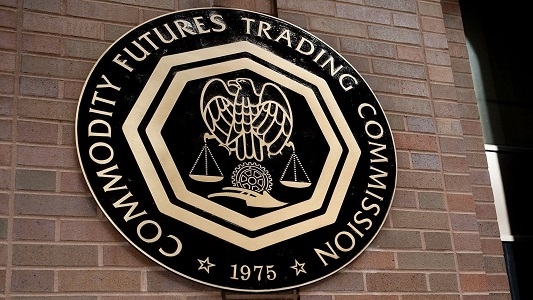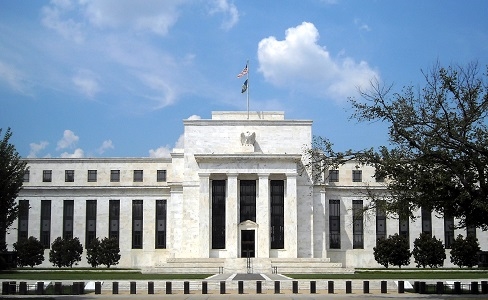Securities lending in the UAE: the race is on

In early August last year, the National Bank of Abu Dhabi (NBAD) became the first institution in the UAE to be handed a licence to carry out securities lending and borrowing activities within the country’s capital markets. The Securities and Commodities Authority (SCA), the regulator that granted the approval, stated at the time that the move would offer several benefits, including helping to bolster the local securities industry, increasing the market’s depth and encouraging more investment in the capital markets from both local and foreign institutions.
Under the system, clients temporarily transfer ownership of their securities to a borrower that can then use the shares in its market making activities. Collateral is posted to the lender, either in the form of a cash guarantee or a bank guarantee or by using other securities. The lender in turn has the chance to earn revenues from the use of their shares. The borrower is obliged to return the securities to the owner at an agreed date in the future or on demand, depending on what is agreed.
The lending of securities is a common activity in many parts of the world, including Europe, Asia and the Americas, but it is still rare in the Middle East region. It has not happened quickly in the UAE and although it is nearly a year since the first licence was granted, the process is still not quite complete.
The SCA board first set out its conditions and requirements for potential licence holders in August 2012, with decision no. 47 “concerning the regulations as to lending and borrowing securities”. The country’s main stock market, the Dubai Financial Market (DFM), approved the practice in January 2014 and the Abu Dhabi Securities Market (ADX) followed a few months later in May. Maryam Fekri, chief operating officer of the DFM, described the move as “an important development for the market… diversifying the range of products to be offered and increasing the UAE’s attractiveness for investments.”
However, it is still a work in progress. NBAD has still not yet launched the product in the market and it is keen to keep expectations in check about what sort of an impact it might have, in the short term at least.
“Eventually, this will be a product which increases the liquidity and the depth of the market and will unlock additional value in the long equity positions of many of our institutional investors, but we are just getting started,” says Jonathan Titone, executive director and head of product development at the bank. “There have been a few setbacks in our journey, and it has taken a bit longer than we had hoped to start the lending and borrowing activity, but we are working very closely with the markets to launch this and they are nearly ready.”
Restrictions remain
One critical factor that he points out is
likely to limit the take-up of the product
in the months following any launch is the
ongoing restrictions on short-selling of
stocks in the UAE.
“Market makers are currently the only investors to have any demand to borrow as they are the only investors that are allowed to short sell in the market,” he says. “Other investors face preverification requirements by the stock exchanges whereby securities must be available in their account prior to trade execution. If the shares are not available, the trade cannot be executed. So other than short selling through market making, there is little demand or purpose to borrow shares. Because of this, we must manage expectations in terms of the limited demand and initial financial returns.”
NBAD says it has received positive interest from potential clients who are keen to explore ways to turn their longterm holdings into another source of revenue. In the longer term, the process could prove to be a handy way for some investors to hedge their positions. Other market participants say that it could also play a useful role in paving the way for other innovations in the future and to support other products.
“The implementation of securities lending and borrowing is an important development for the market because it diversifies the range of products that are up for offer,” says Mihir Kapadia, CEO and founder of Sun Global Investments, a wealth management company with offices in Dubai, London and Mumbai. “It is a key piece of market infrastructure for the development of other market products such as exchange traded funds.”
However, there are some reasons to doubt whether the product will prove quite as popular as it has in some other, more mature markets, given the nature of the region’s shareholders. In particular, some observers say there are many firms in the UAE that have no interest in doing anything with their shares other than holding on to them. It is likely to take some time to educate such investors and persuade them of the benefits of lending their shares.
“You have some clients that have large positions in firms and they may be interested, but for the most part the investor base that own the more established publicly-listed institutions don’t want to do anything with those shares outside of just hold them for dividend payments,” says one Dubai-based executive.
Instead, if the authorities want to improve liquidity in the market, they may be better off focusing on opening up the market to international investors. That has been gradually happening, encouraged by the MSCI upgrade in May 2014, when the UAE was included in the firm’s emerging markets index.
In June last year, the UAE federal government decided to lift its ban on non-UAE investors owning shares in local telecoms giant Etisalat. The change went ahead in mid-September, with a 20% ceiling on foreign ownership. Rival telecoms outfit Emirates Integrated Telecommunications Company (Du) has been touted to follow suit by investment bank Arqaam Capital.
Predicted demand
The fact that no other licences have yet
been awarded for securities lending
and borrowing suggests that other
institutions are at best cautious about the
potential for this product. Nonetheless,
Titone appears confident that there will
be plenty of demand from clients wanting
to lend their shares and that, in time,
others will want to follow NBAD into the
market. That optimism stems in part from
the fact that the regulator is expected to
loosen the restrictions on short-selling in
the future. Whether that transpires is still
a moot point, but there is optimism in the
industry.
“There is strong interest on the client side to lend their shares,” says Titone. “We expect other market makers to enter the market soon, and the regulator and markets are also planning to introduce short selling for investors, other than market makers, in the near term. Once this is possible, demand will increase exponentially, and we expect even more competition to enter the market. We believe there will be significant demand in the medium term."
Furthermore, says Titone, there are large institutional investors holding large blocks of very attractive securities. “These investors have no intention to sell the positions any time in the near future, and these positions can be used to generate additional yield.”
The idea of securities lending and borrowing should receive a further boost early next year from another development in the region. In early May this year, the Capital Market Authority (CMA) in Saudi Arabia announced that it will soon permit the practice for trades on the Saudi Stock Exchange (Tadawul). It is due to issue the necessary regulations during the first half of 2017. What happens in the kingdom, the Middle East’s largest economy, invariably affects other Gulf states.
Securities lending has been a long time to arrive in these countries, but once the product is available in the market it ought to find a loyal and growing following. The race is on.
Found this useful?
Take a complimentary trial of the FOW Marketing Intelligence Platform – the comprehensive source of news and analysis across the buy- and sell- side.
Gain access to:
- A single source of in-depth news, insight and analysis across Asset Management, Securities Finance, Custody, Fund Services and Derivatives
- Our interactive database, optimized to enable you to summarise data and build graphs outlining market activity
- Exclusive whitepapers, supplements and industry analysis curated and published by Futures & Options World
- Breaking news, daily and weekly alerts on the markets most relevant to you




